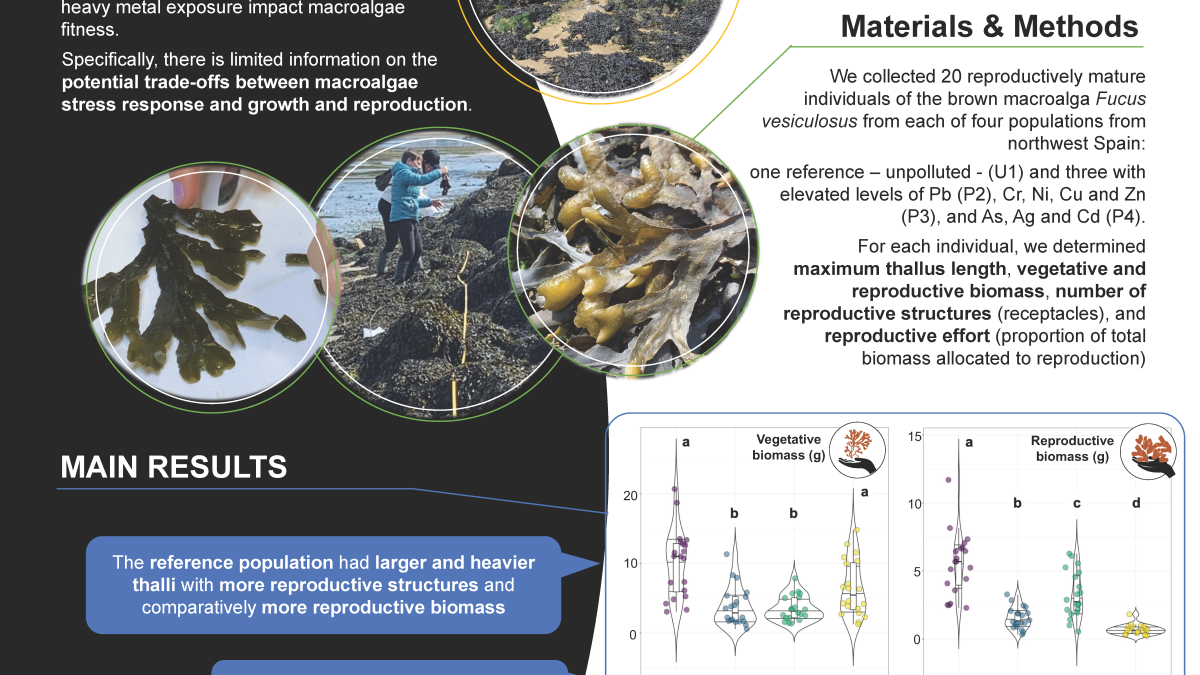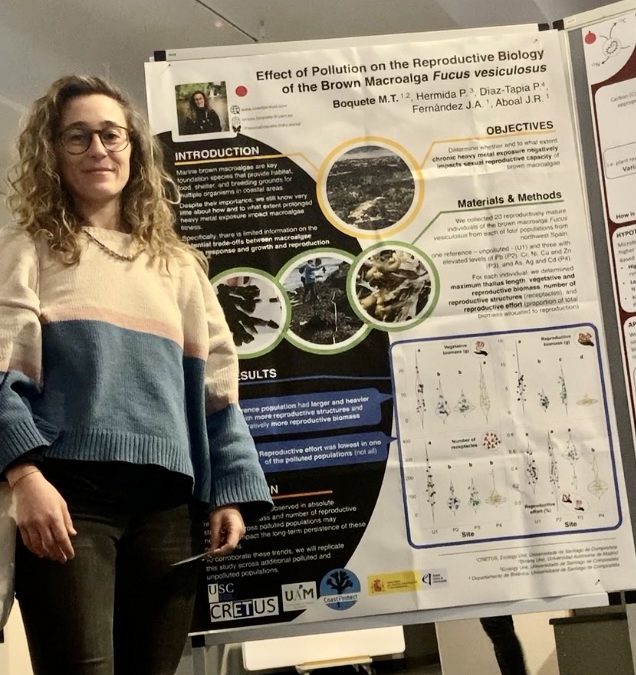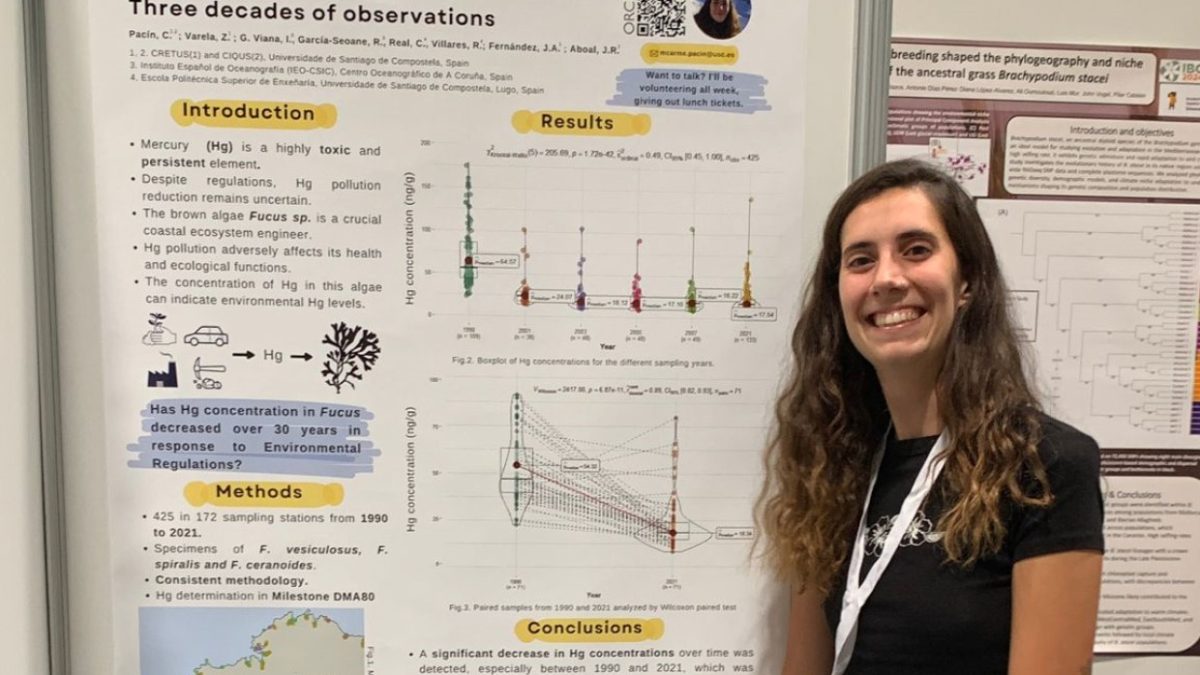Under the leading of Antón Vázquez-Arias and against all odds (as shown at the beginning of the video), we have been collecting F.vesiculosus individuals for the preparation of transplants (live and devitalised) for one year. These transplants have been installed in 22 locations of the Galician geography in different nautical clubs (we thank them for their collaboration), together with autosamplers who have worked during the two weeks of transplantation. Today we already have the results and, in a few weeks, we will have a draft that will allow us to clarify the relationship between the concentration of PETs in the native algae, transplanted and the water in which they live.
8 October 2024
Share


